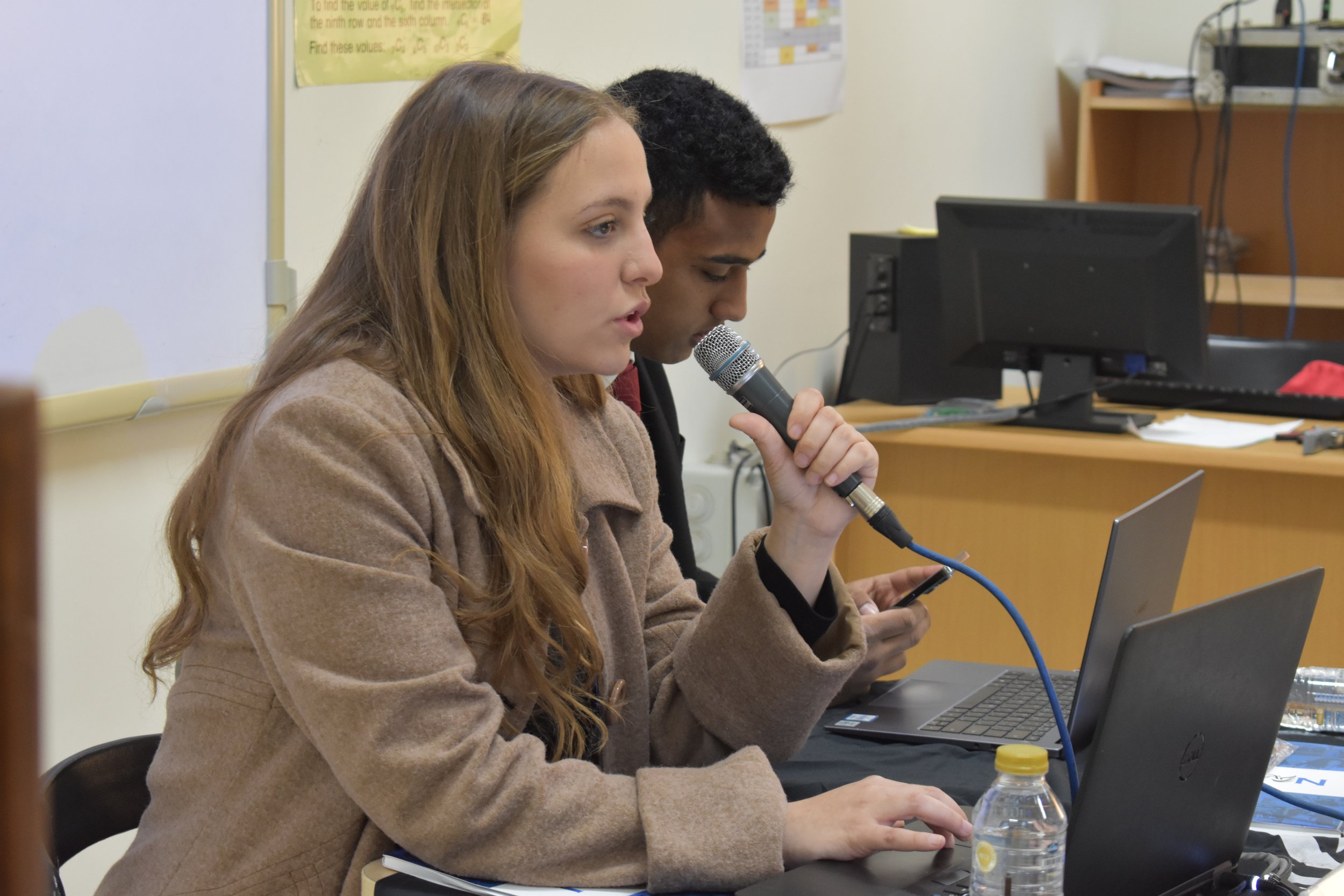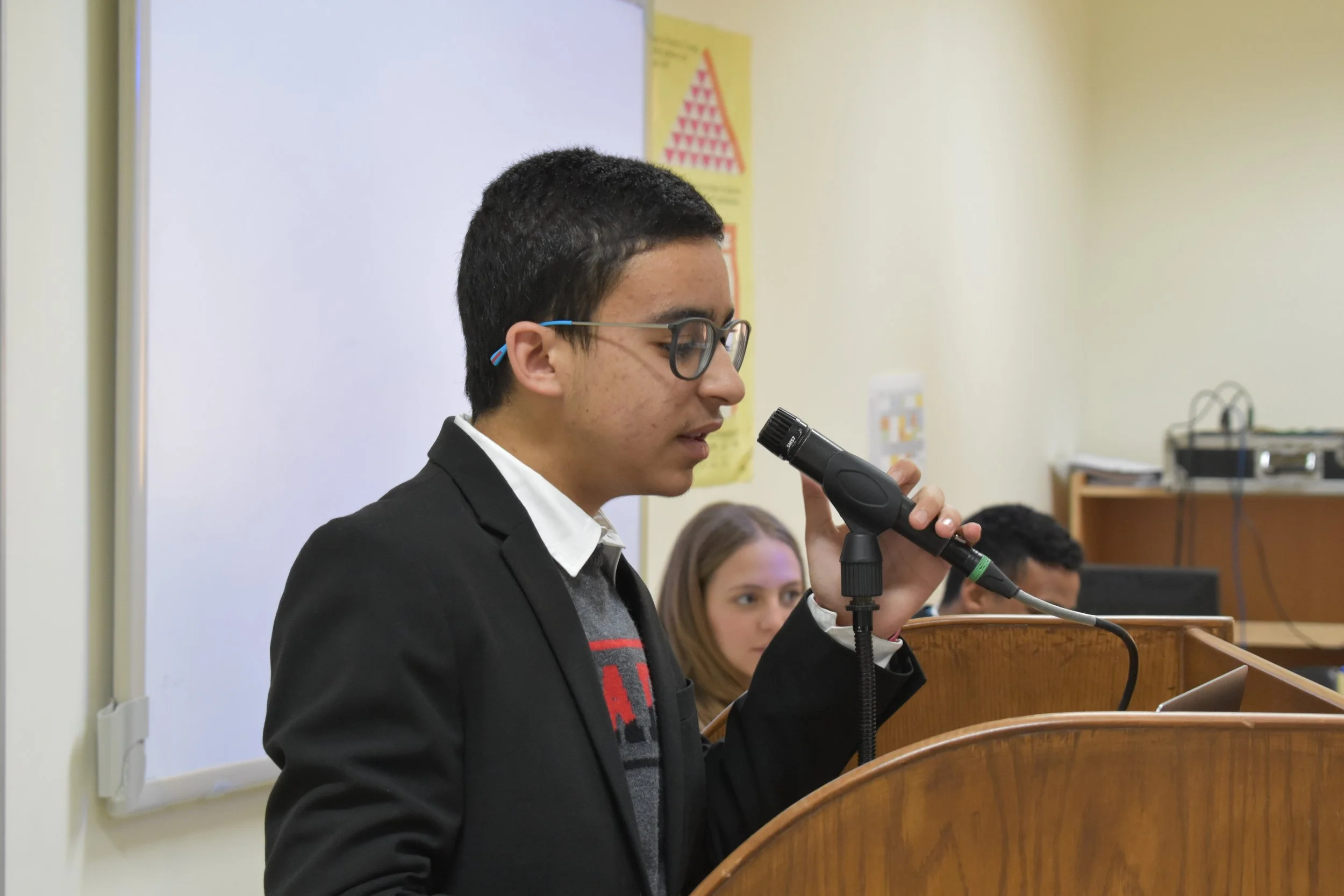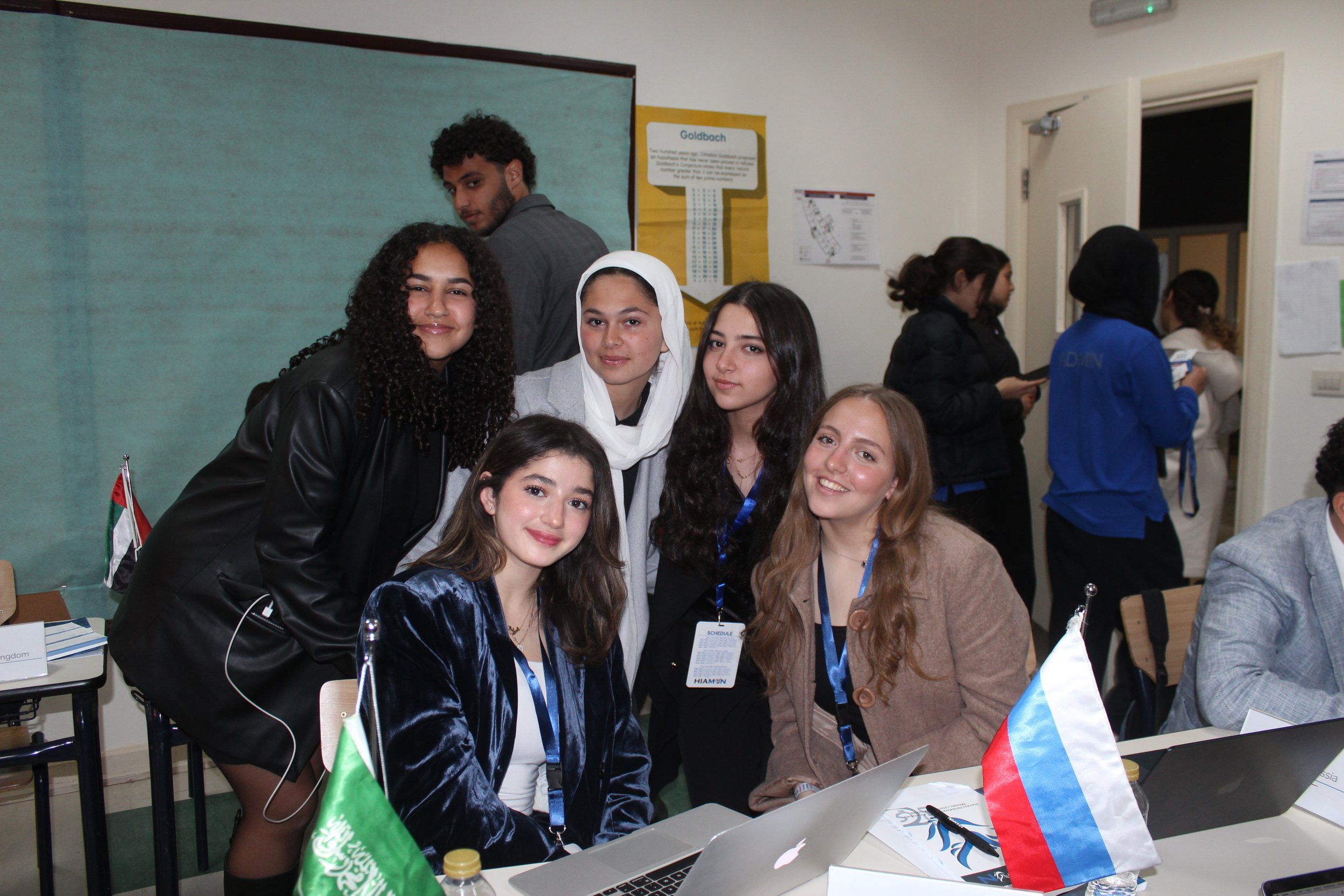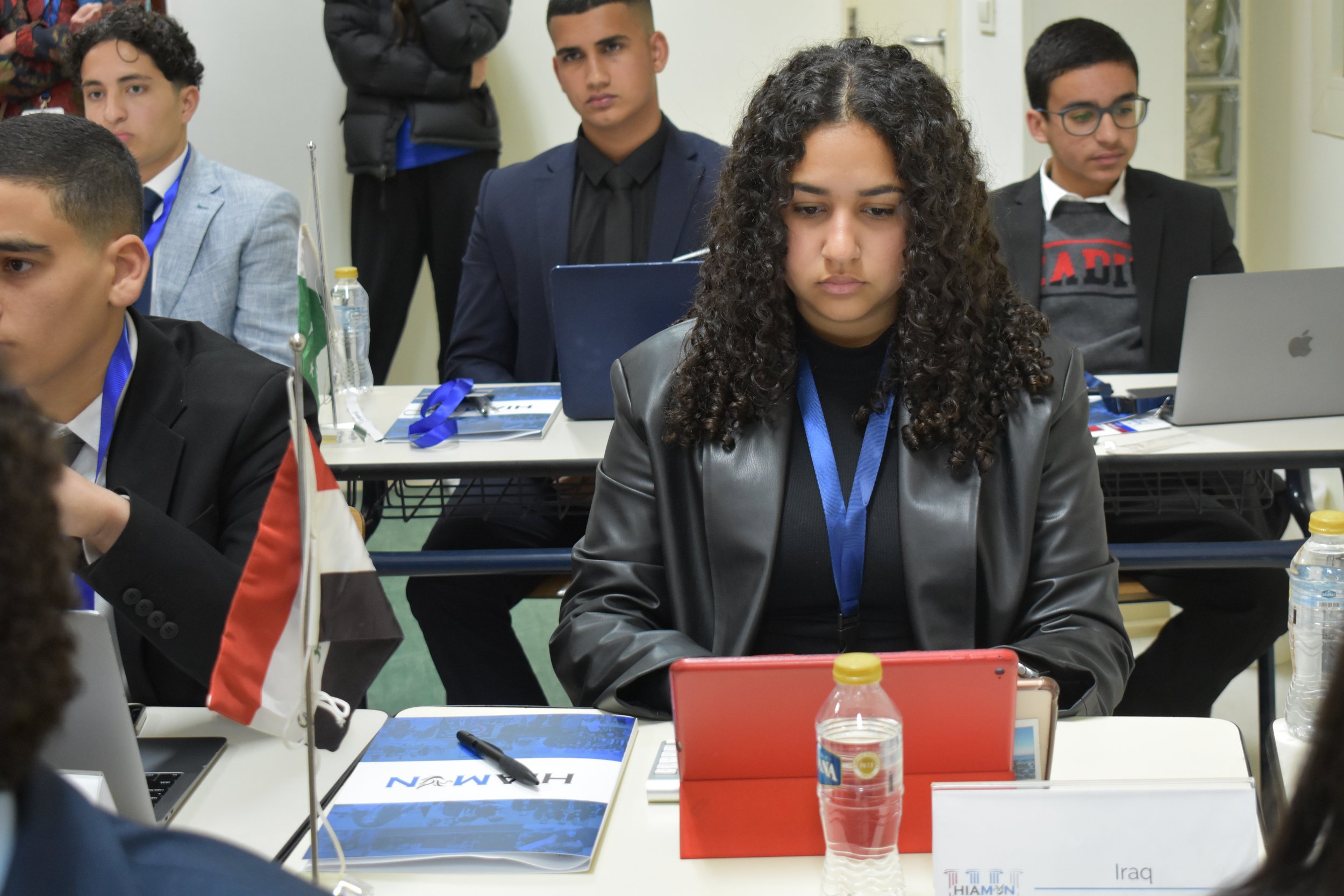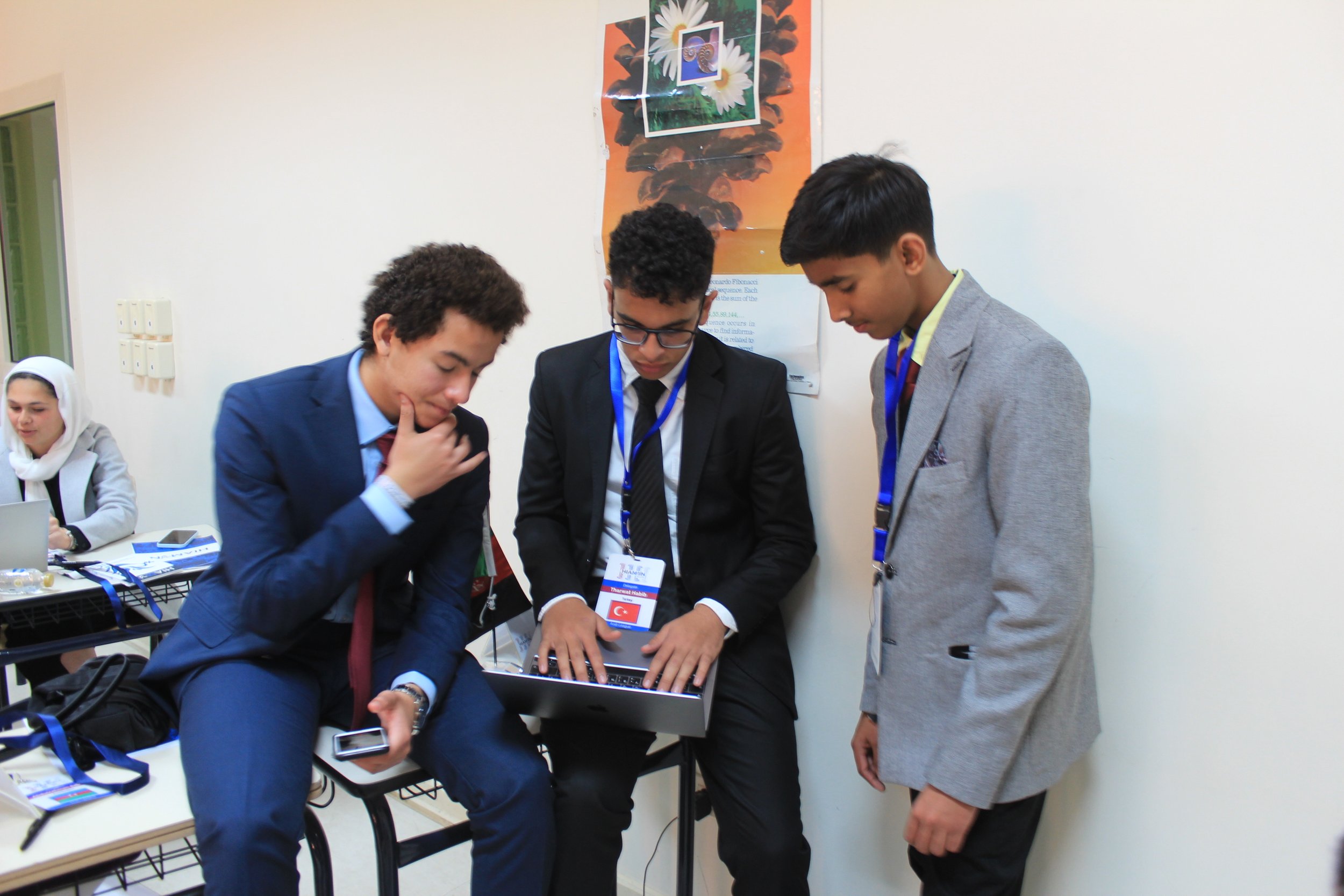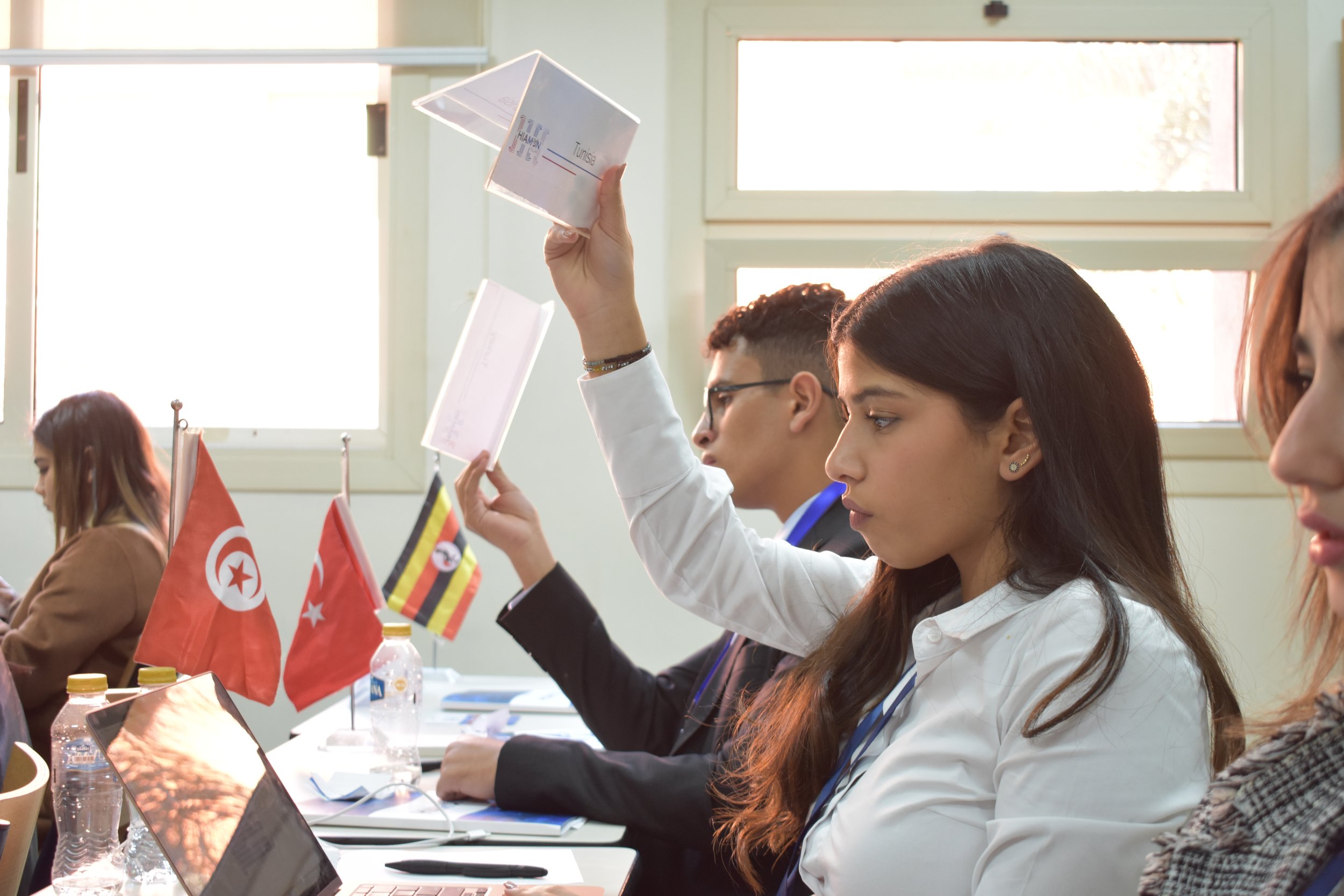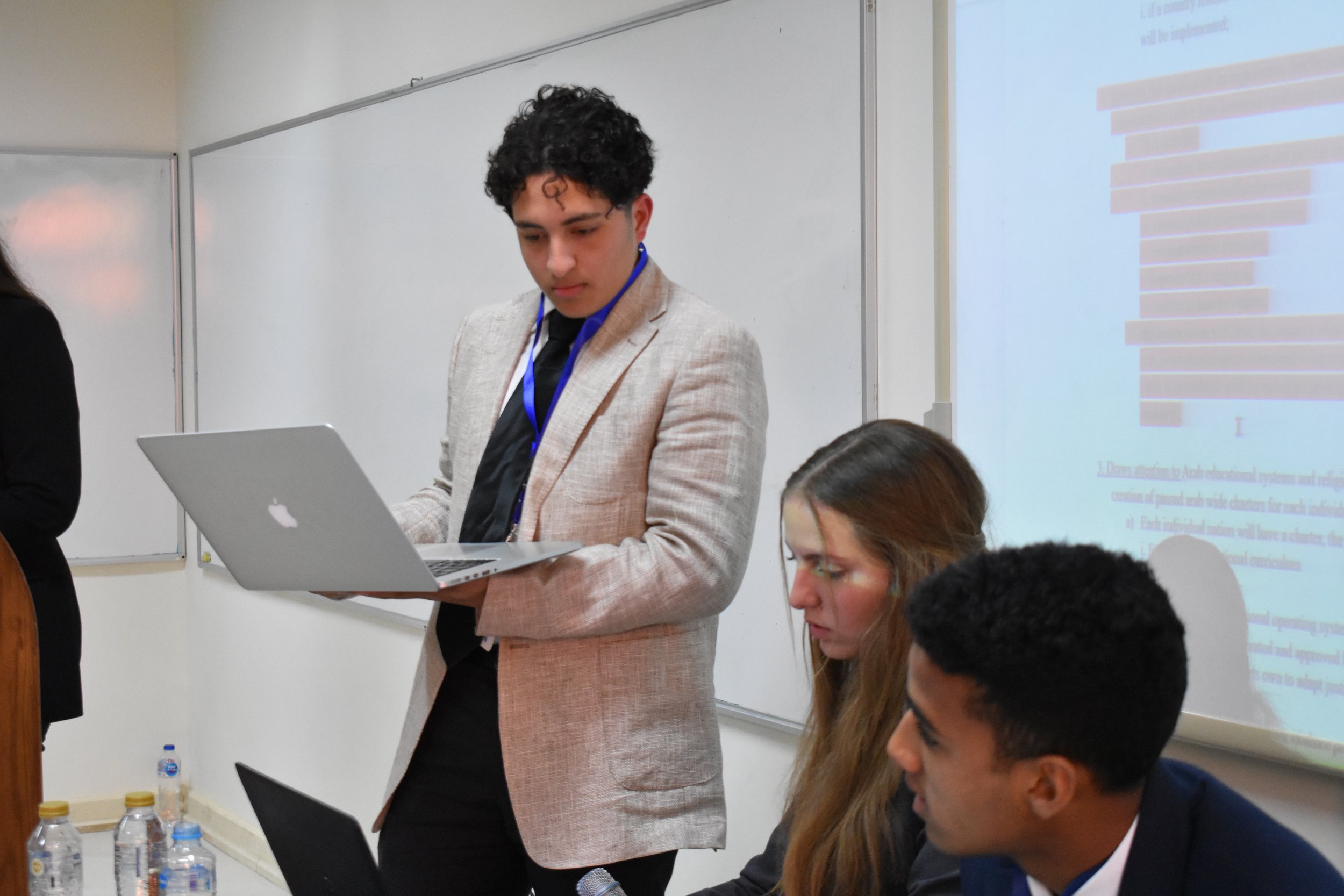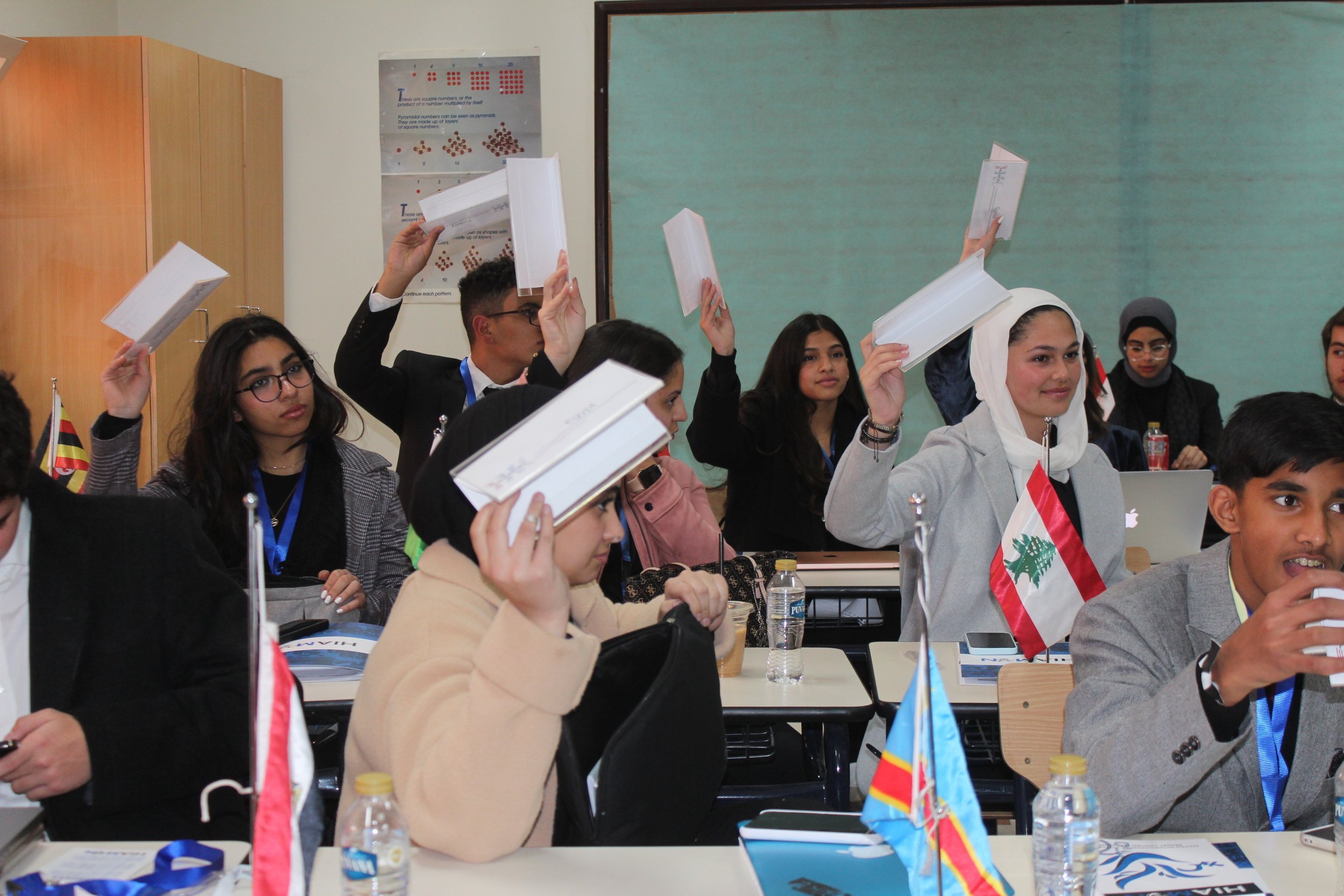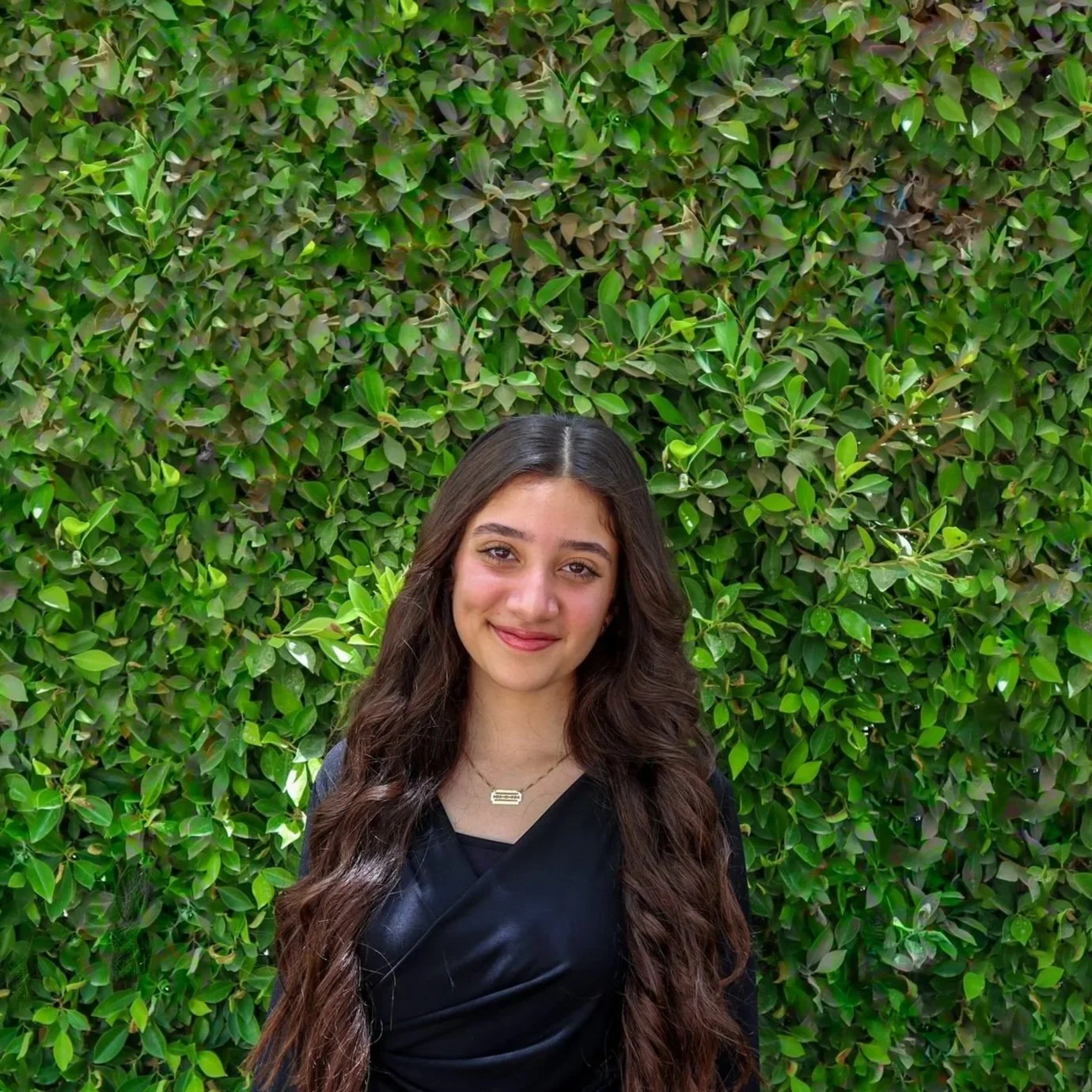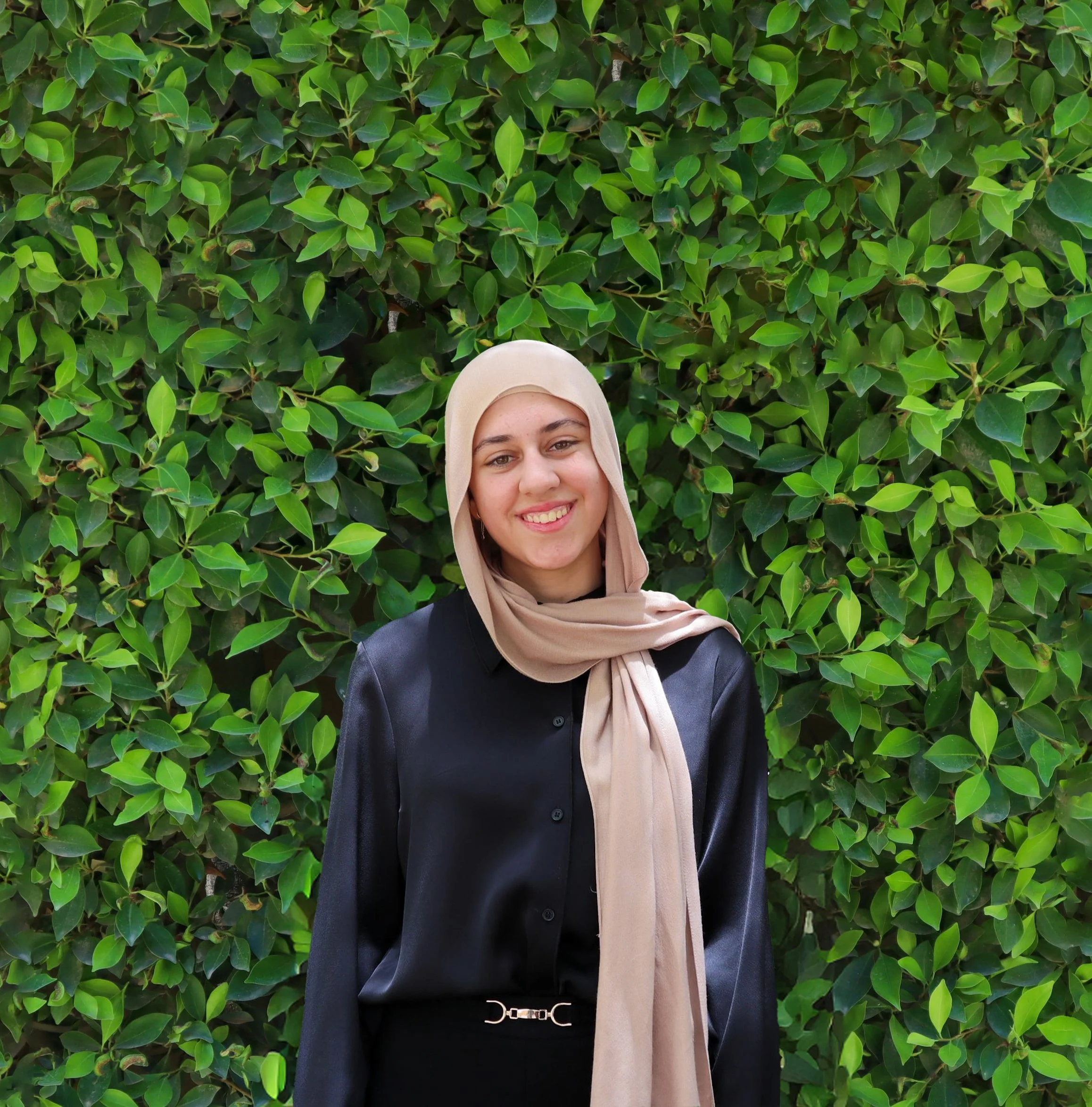Arab League
Hania El Oksh, President
Lina Hassan, Chair
Founded in 1945, The Arab League is a regional organization made up of 22 Arab states, sharing language, culture, and political interests. It was founded to promote cooperation across the Arab world and provide a platform where member states could address regional challenges through dialogue and diplomacy. What sets the Arab League apart is its focus on solutions shaped by mutual understanding rather than imposed global norms. Today, it stands as one of the few forums dedicated entirely to issues unique to the Arab region. In a world where the Arab voice is often overlooked, the League offers a platform to reclaim it.
This year's theme, Resonance, captures the very essence of what the Arab League represents. In a region where every decision has historical roots and widespread impacts, nothing exists in isolation. Given the interconnectedness of the Arab world, one country’s policy can echo through its neighbors politically, socially, and economically. This forum was built to recognize these echoes, respond to them, and use them to make progress.
My esteemed Chair, Lina Hassan, and I have selected three topics that reflect the complexity of the Arab world today. Our first topic, “Addressing the division of governance and foreign influence in the Libyan civil war”, invites delegates to explore the roots of instability and the consequences of foreign involvement. Control over Libya’s oil reserves, human rights violations, and the collapse of state institutions have made this a prominent crisis and raised significant regional security concerns. The second, “Addressing the socioeconomic integration of refugee populations in Arab host states”, centers around the tension between economic strain and humanitarian responsibility. Finally, the topic of “Addressing the role and accountability of transnational corporations in Arab nations”, encourages delegates to consider how globalization, profit, and policy intersect across the region. While they bring investment, technology, and jobs, there are increasing concerns about labor rights violations, environmental degradation, tax avoidance, and lack of accountability.
Lina and I are truly excited to see what you’ll bring to this forum and witness the heated debates that await. The Arab League demands critical thinking, diplomacy, and genuine engagement, and I am confident that you’ll tackle these aspects with grace. As Malcolm X once said, “The future belongs to those who prepare for it today.”
Hania El Oksh, President of the Arab League
Topics
1. Addressing the division of governance and foreign influence in the Libyan civil war
2. Addressing the socioeconomic integration of refugee populations in Arab host states
3. Addressing the role and accountability of transnational corporations in Arab nations
